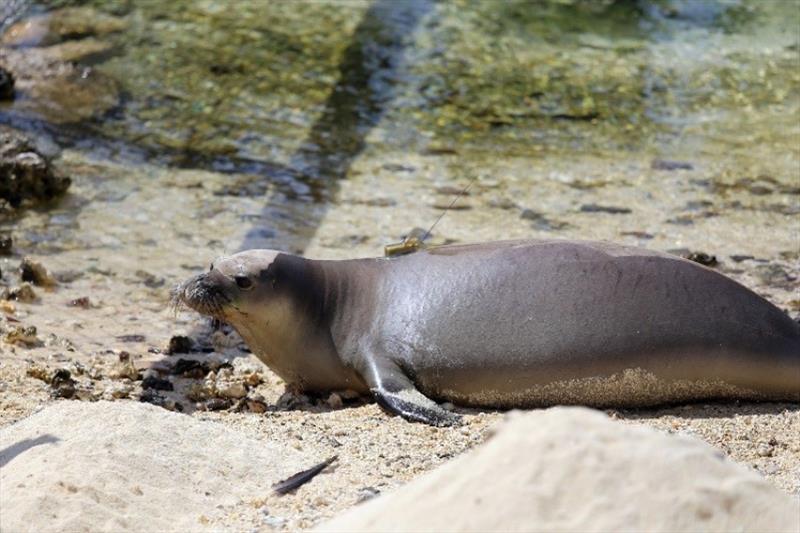
Seal strandings in New Hampshire and Maine
by NOAA Fisheries 24 Aug 2018 13:21 UTC

Seal strandings in New Hampshire and Maine © NOAA Fisheries
Stranding Numbers for July 1-August 20, 2018
Maine
July: 43 live, 65 dead
August: 40 live, 170 dead
New Hampshire/Northern Massachusetts
July: 17 live, 30 dead
August: 14 live, 48 dead
Total live: 114
Total dead: 313
Friday, August 17, 2018
An increase in both live and dead stranded harbor seals and gray seals continues along the coasts of Southern Maine, New Hampshire, and northern Massachusetts, with spikes in strandings over the last week. Currently more than 280+ seals have stranded live or dead in the region since June 1, 2018. Live seals are presenting in poor body condition with clinical signs of lethargy, coughing, sneezing, and seizing.
Samples have been collected and sent for testing for avian influenza and phocine distemper virus, results should be available next week from that testing. Previous seal mortality events have been caused by avian influenza and phocine distemper virus in the northeastern US but we do not know if these agents are the cause of the current strandings.
The response team, with input from the experts, is taking a tiered approach relying on pathology and epidemiology to guide the direction additional analyses may need to go as we rule in or out physical, chemical or biological factors that may be contributing to or causing these mortalities.
Many of the carcasses have been moderately to severely decomposed, which significantly reduces the ability to perform many analyses. Some sample analyses are not possible given the decomposition of the carcasses.
Further evaluations will continue over the next several weeks to months as new animals are found or new evidence determines the direction of the investigation. These rigorous investigations may take several more months to complete. However, NOAA and its federal and non-governmental partners will make every effort to make these data available to the public as soon as possible.
Thursday, August 16, 2018
There has been a high number of harbor seals stranding in southern Maine starting in July with increasing numbers stranding over the last week. We are now also seeing increasing numbers of stranded harbor seals in New Hampshire and northern Massachusetts.
Cause of the recent strandings is unknown at this time. During elevated stranding events such as this, members of the Marine Mammal Stranding Network collaborate with NOAA to further investigate environmental conditions, common factors contributing to past stranding events, and any potential human impacts.
Samples from seals have been collected throughout the summer, and will continue to be collected as new cases are documented.They will be tested for possible pathogens that have caused seal die-offs in the past, including avian influenza, phocine distemper virus, and harmful algal blooms.
If you see a sick or injured seal, please call the NOAA hotline: 866-755-NOAA (6622). Please be patient, as the stranding response teams are very busy!
For your safety and theirs, do not touch a stranded seal, don't allow pets to approach the seal, and observe the animal from a safe distance of 100 yards.
Stranding Numbers for July 1-August 15, 2018
Maine
July: 42 live, 61 dead
August: 28 live, 85 dead
New Hampshire
July: 14 live, 27 dead
August: 11 live, 27 dead
Total live: 95
Total dead: 200
More information: